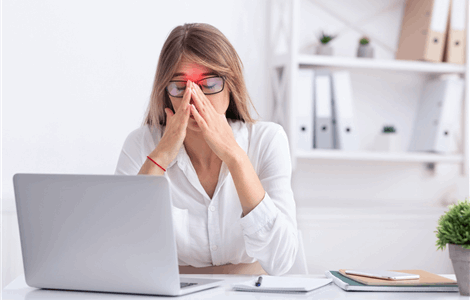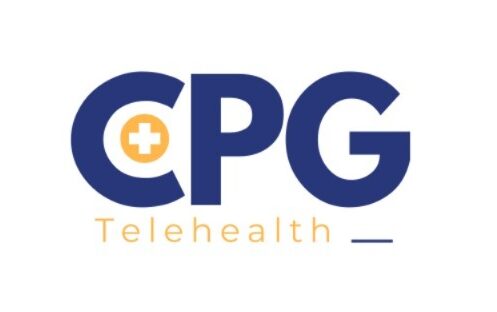Sinus infection treatment available online today
In order to treat your sinus infection, consult with one of our board-certified doctors today to prescribe steroid nasal sprays or antibiotics to decrease congestion and pain, if you qualify. Get a new prescription for a sinus infection or refill an existing prescription and find relief today.*
- Expert care for sinus infections
- Personalized treatment plans for quick recovery
- Online relief for sinus infection discomfort

Learn about sinus infections
A sinus infection, also called sinusitis, is the infection, swelling, and inflammation of cavities in your face called the sinuses. You have many sinus cavities in your face, so you may experience pain anywhere from your teeth to above or below your eyes to a sinus headache depending on which sinus cavities are affected. Sinus infections are commonly caused by viruses and allergies, and more rarely by bacteria.
Sinus infection causes
Sinus infection symptoms
Sinus infection symptoms can include:
Cough
Facial pain, tenderness, or swelling
Fever
Inability to smell
Nasal congestion
Nasal discharge that is yellow, green, or cloudy
Pain above, below, or between your eyes; your forehead; either side of your nose; or your upper teeth or jaw
Postnasal drip
Sinus headache
Sore throat
Tooth pain
How to treat a sinus infection
A lot of the time, sinus infections will clear up within 7-10 days with rest, fluids, and some simple over the counter and home remedies. If your sinus infection lasts longer than a week, you should speak to a doctor to diagnose the cause of your sinus infection and get prescription medication to treat it if needed.
Sinus infection medication
Here are some of the most effective for sinus infection medications:
Nasal decongestant sprays
These may relieve symptoms, but you should not use them any longer than three days since you may suffer from rebound effects.
Steroid nasal sprays
Saline nasal irrigation or a Neti Pot
This can help flush mucus from your sinus cavities, which can help reduce your symptoms. It is important to note that you should use filtered or boiled water; tap water can cause problems.
Antihistamines and decongestants
Mucus thinners
Over the counter pain medications
Antibiotics
How to prevent sinus infections
To prevent yourself from catching a viral or bacterial infection that causes a sinus infection, follow proper hygiene by washing your hands frequently, wearing a mask around others, and staying distanced from others. To prevent a sinus infection caused by allergies or irritants, invest in an air purifier and keep the area you stay in clear from any possible irritants. Smoking can also cause sinus infections, and we can help you with quitting smoking
When to see a doctor for a sinus infection
If you have a sinus infection that has lasted more than a few days, you should consult a doctor to determine the cause of your sinus infection. It may be time to explore antibiotics to help your sinusitis clear up quickly, if it’s a bacterial sinus infection. Book an appointment with one of our board-certified online doctors to explore treatment options.
.
Sinus infection treatment FAQs
Treating sinus pressure often requires more than one medicine. For example, you may combine a decongestant with a pain reliever to reduce swelling and relieve pain at the same time. Since there are different causes of sinus pressure, the best medicine will vary for each individual. Most sinus infections are caused by viruses. A prescription-strength nasal steroid spray can help quickly relieve symptoms. If your congestion is a result of a bacterial infection, you may be prescribed antibiotics. One of our doctors can evaluate your symptoms online today and prescribe these medications if you qualify. If you're experiencing sinus pressure symptoms, book an appointment with one of our physicians and get started with treatment today
Antibiotics require a prescription. You cannot buy them over the counter and most have specific directions for taking them and some side effects. It is a federal law that all antibiotics require a doctor's prescription. While in the past sinus infections were often treated with antibiotics, we now know that most of these infections are caused by viruses, not bacteria.
Antibiotics are generally needed for only severe, prolonged infections greater than 10-14 days in duration or if you have a high fever.
While most sinus infections are viral and do not require antibiotics, when the infection lasts more than 10-14 days and/or is accompanied by a high fever, it might have a bacterial cause.
Instead of turning to quick fixes, it is important to learn what medications are safe. Talk to a doctor to find out which medications are safe to take during pregnancy to help your symptoms and to prevent them from worsening. In addition, you can try some of these methods at home to ease symptoms:
-Keep the air moist with a humidifier in your room while you sleep at night. This will keep your nasal passages moist and expedite healing.
-To avoid damaging delicate mucus membranes, make sure you are not blowing your nose too aggressively.
-Elevate your head while sleeping. Propping your head up with a few pillows at night to prevent the postnasal drip and coughing may allow you to sleep better.
-Make your nutrients count. Appetite can be hit hard by both pregnancy and infection. When you do eat, choose as many nutrient-dense fruits and vegetables as possible.
Yes, most sinus infections can be spread via respiratory droplets unless they are a result of allergies or irritants. If you have a contagious sinus infection, do your best to prevent spread to others. While the best thing would be to isolate yourself until you feel better, that is not always feasible. Take general precautions such as staying away from others, washing your hands frequently, using sanitizer, and wearing a face mask.
